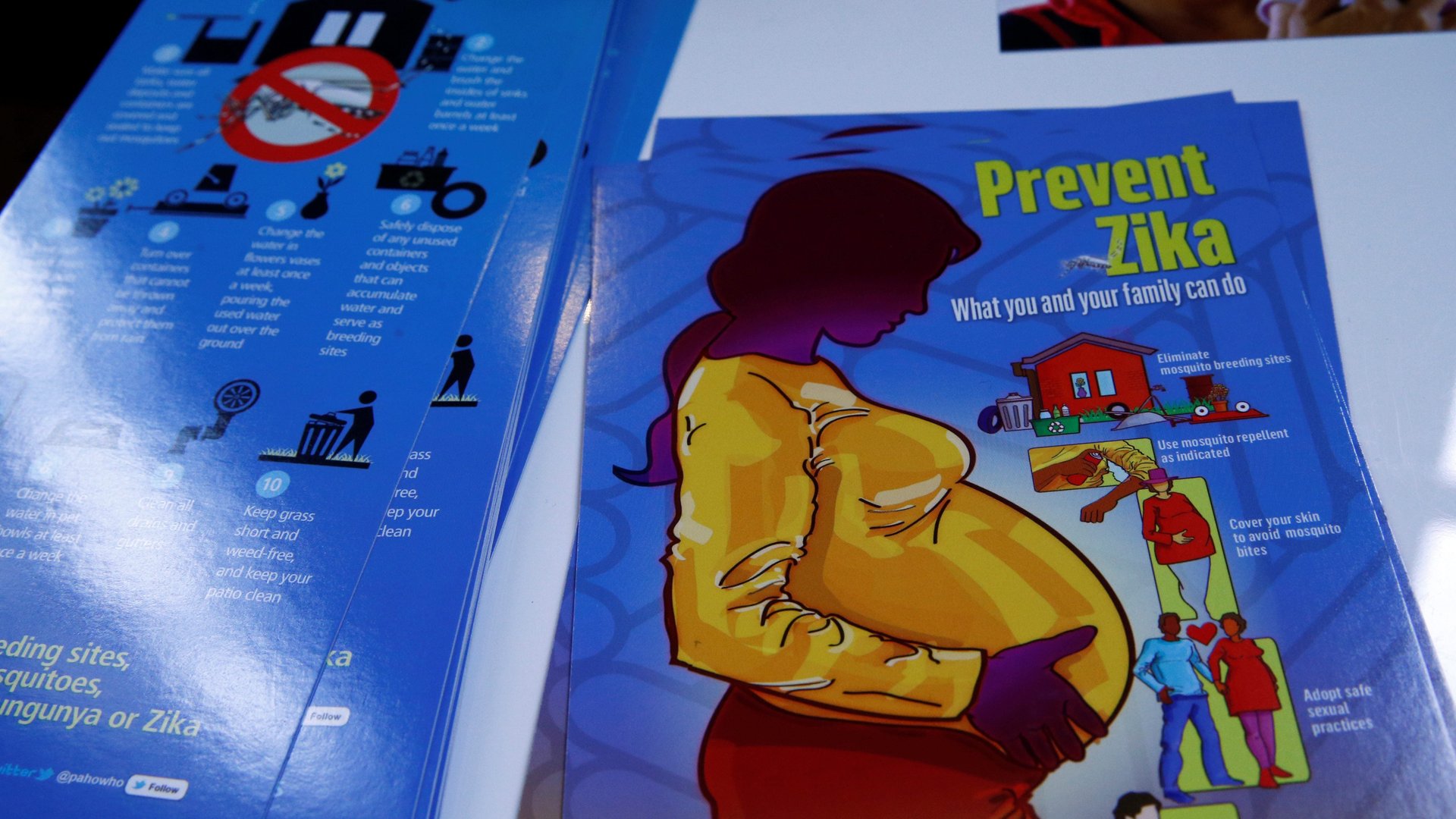In Brazil, women are made to feel responsible for Zika outbreaks
Of all the countries hit by Zika epidemics in the past year, none has suffered as many cases as Brazil, where more than 1.5 million people may have been affected. The epidemic has caused over 6,000 children to be born with microcephaly (pdf, p.6) and other neurological conditions, as well as a heightened occurrence of Guillain-Barré Syndrome (GBS).


Of all the countries hit by Zika epidemics in the past year, none has suffered as many cases as Brazil, where more than 1.5 million people may have been affected. The epidemic has caused over 6,000 children to be born with microcephaly (pdf, p.6) and other neurological conditions, as well as a heightened occurrence of Guillain-Barré Syndrome (GBS).
Brazil has reacted primarily by trying to control the Aedes mosquito that carries to virus. It has warned women that they should take extra precautions to protect themselves against bites during pregnancy—or postpone getting pregnant at all.
In a country where abortion is illegal unless the pregnancy is a consequence of rape or puts the mother’s life at risk (a Zika infection would likely not), women are often put in a paradoxical situation, said Melania Amorim, a professor of gynecology and practicing ob-gyn collaborating with the World Health Organization (WHO) in Brazil.
Amorim, who works in Campina Grande, in the northeastern state of Paraíba, one of the most affected by the epidemics, said at the Women Deliver conference that the government’s various anti-Zika campaigns have one element in common—”blaming the population.”
The areas where Zika is most common and are the same places that have seen large dengue epidemics, she said. Both sicknesses are transmitted by Aedes Aegypti mosquitos (though Zika might be spread by other Aedes mosquitos, too), which thrive near open pools of water. People in these areas live in conditions of extreme poverty, with serious lack of infrastructure. “This is not a recent problem,” she said. “We have had dengue since the 1980s—the responsibility is of the government.” In the area where she works, 77% of the newborns with microcephaly or other neurological conditions following Zika exposure are born in families living below the poverty line.
Government campaigns that tell people not to store water or wear specific clothing or keep their areas clean are impossible to implement when they haven’t any connections to clean water or live near open sewage. By not providing basic infrastructure in the first place, Amorim said, the government set the stage for the Zika epidemic.
Women are particularly targeted. “They say ‘the woman is the soldier’ ” fighting against Zika, Amorim said. “Our contraception policy is not viable,” she said, given that IUDs and long-term contraception methods are not easily available, and abortion is illegal. Meanwhile, the government gives warnings like ”don’t kiss your husband during pregnancy,” which reinforce the idea that it’s a woman’s responsibility to stay away from Zika, Amorim said.